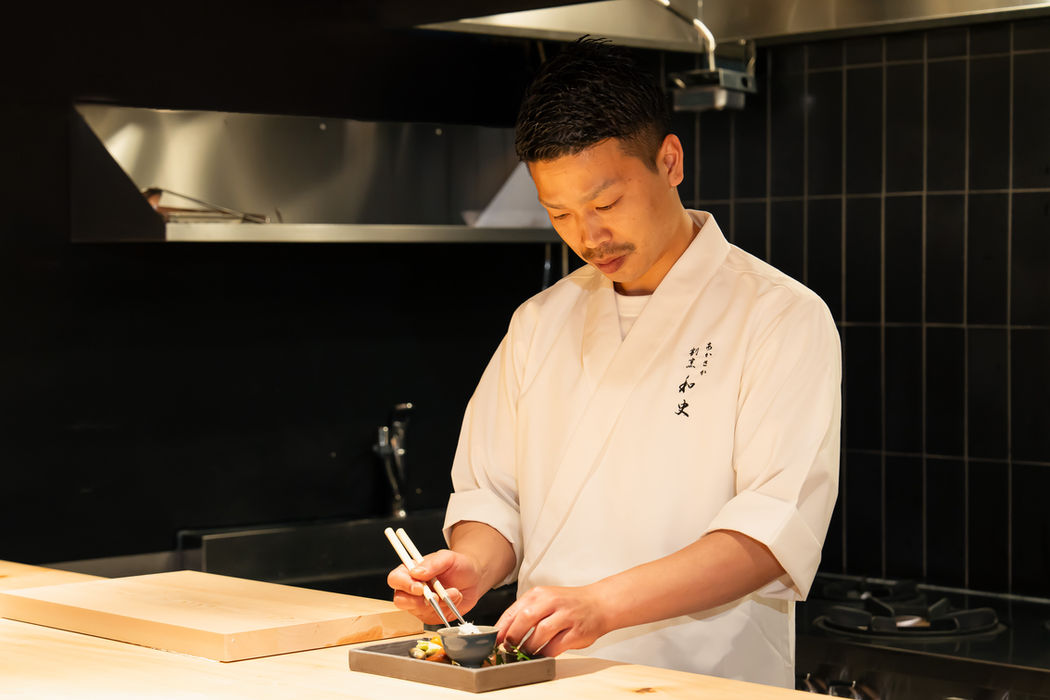
Message from the Owner
The Meaning Behind “WASHI”
The name “WASHI” reflects my wish to carry on the
"
history (史:shi)
" of "
Japanese harmony (和:wa)
"
I want to weave.
It is a name I had in mind from the very beginning, when I first aspired to become a chef.
While honoring the time-honored techniques and culture of traditional Japanese cuisine,
I strive to take on new challenges and present a modern expression of *washoku*.
Cherishing the spirit of “wa,” I aim to create a place in Akasaka where every guest experiences a truly special moment—
and where a new chapter in the history of Japanese dining begins.
Takanori Hamano, Owner & Chef
"
history (史:shi)
" of "
Japanese harmony (和:wa)
"


The Meaning Behind “WASHI”
The name “WASHI” reflects my wish to carry on the
"
history (史:shi)
" of "
Japanese harmony (和:wa)
"
"
history (史:shi)
" of "
Japanese harmony (和:wa)
"
I want to weave.
It is a name I had in mind from the very beginning, when I first aspired to become a chef.
While honoring the time-honored techniques and culture of traditional Japanese cuisine,
I strive to take on new challenges and present a modern expression of *washoku*.
Cherishing the spirit of “wa,” I aim to create a place in Akasaka where every guest experiences a truly special moment—
and where a new chapter in the history of Japanese dining begins.
Takanori Hamano, Owner & Chef

Our Philosophy at WASHI
"Preserve tradition and create new value."
At WASHI, we carry forward the time-honored techniques of traditional Japanese cuisine,
while embracing modern sensibilities and innovation to craft a new form of washoku.
Through mindful cooking practices that minimize waste and efforts to reduce food loss,
we express deep respect for every ingredient and work toward a more sustainable future.
Through our cuisine, we aim to deliver joy and inspiration,
creating a space that connects people and fosters meaningful moments around the table.
Chef’s Career
Chef Takanori Hamano began his culinary journey in his teens, training at Michelin one-star restaurants such as Nogizaka Kamiya and Akasaka Takegami,
where he gained a deep understanding of the essence of Japanese cuisine.
He went on to refine his craft at Tsukiji Kamemoto and a Japanese restaurant in Melbourne, before becoming the sous-chef at Azabu-Juban KAfuka upon its opening in 2015.
He later served as head chef at Ebisu Imaichi and Kagurazaka WASHI for eight years.
In 2025, he returned to Akasaka—the place where his career began—and opened his own restaurant: Akasaka Kappou WASHI.











